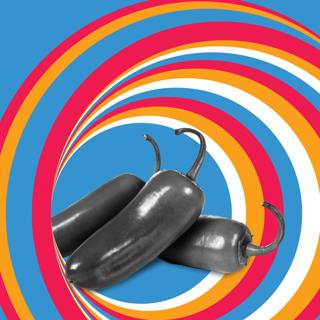
Standing Up for Sitting Down
If you’re lucky, it’s possible you’ve never thought much about sitting. It’s just something your body does, like breathing or sleeping. But in the last decade or so, sitting has stepped into the spotlight, as a kind of villain. In today’s episode, Slate’s Dan Kois tells us about his radical experiment to go without sitting for an entire month. Then to understand why sitting is under attack we look back at an earlier posture panic around slouching, and explore the role of hostile architecture. This episode was written by Max Freedman and Willa Paskin and produced by Max. We produce Decoder Ring with Katie Shepherd and Evan Chung. Derek John is Executive Producer. Merritt Jacob is Senior Technical Director. You heard “Sitting” by TJ Mack, aka Brian Jordan Alvarez, as remixed by Josh Mac. You also heard from Beth Linker and Jonathan Pacheco Bell. We’d like to thank Stephen Nessen and Rob Robinson. For some of the background on hostile architecture, we are indebted to the late Mike Davis’s book, City of Quartz, and in particular Chapter 4: “Fortress L.A.” Check out Dan Kois’ New York Magazine article about his exploits, “Sitting Is Bad for You. So I Stopped. For a Whole Month.” If you haven’t please yet, subscribe and rate our feed in Apple Podcasts or wherever you get your podcasts. And even better, tell your friends. If you’re a fan of the show, we’d love for you to sign up for Slate Plus. Slate Plus members get to listen to Decoder Ring and every other Slate podcast without any ads. You also get unlimited access to Slate’s website. Member support is crucial to our work. So please go to Slate.com/decoderplus to join Slate Plus today. Learn more about your ad choices. Visit megaphone.fm/adchoices
31 Jul 202438min

The Secret Life of Lawn Ornaments
Lawn ornaments are everywhere—but for something so ubiquitous, they’re also mysterious. What’s the person with the flamingo or the gargoyle in their yard trying to say—and why do they want to say it so publicly? From the garden-variety to the not so common, the adorable to the odious—lawn ornaments speak volumes, without saying a word. In this episode, we travel from Germany to England and back home to look at the history and meaning behind three specific lawn ornaments: the garden gnome, the lawn jockey, and the 18th century ornamental hermit. You’ll hear from historian Twigs Way, Sven Berrar of the Zwergstatt Gräfenroda, David Pilgrim of the Jim Crow Museum, Kenneth Goings who is an emeritus professor at the Ohio State University, and art historian Ned Harwood. This episode was written by Evan Chung and Willa Paskin. It was produced by Evan Chung. We produce Decoder Ring with Katie Shepherd and Max Freedman. We had additional production from Cheyna Roth and Martina Weber. Derek John is Executive Producer. Merritt Jacob is Senior Technical Director. Thank you to Friedemann Brenneis, Heather Joseph-Witham, and Elise Gramza. If you have any cultural mysteries you want us to decode, email us at DecoderRing@slate.com. If you love the show and want to support us, consider joining Slate Plus. With Slate Plus you get ad-free podcasts, bonus episodes, and total access to all of Slate’s journalism. Learn more about your ad choices. Visit megaphone.fm/adchoices
17 Jul 202449min

Sex, Lies, and Hockey Pucks
30 years ago, the Stanley Cup playoffs ignited a rumor that has been messing with Jane Macdougall’s life ever since. In 1994, the Vancouver Canucks had made it all the way to Game 7 of the Stanley Cup Finals against the New York Rangers. When they barely lost, fans expected the team to come back blazing the next year. Instead, 1995 was a total letdown. Team chemistry disappeared and fans started looking for an explanation. Quickly, a rumor took hold: a defensive player had been having an affair with the goalie’s wife, which destroyed team morale and left the franchise flailing. In this episode of Decoder Ring, Acey Rowe from the Canadian Broadcasting Corporation traces the Canucks rumor from locker rooms to chat rooms. And she talks to NHL players Kirk McLean and Jeff Brown to figure out how a story like this can snowball and survive for 30 years. This episode was reported and produced by Acey Rowe. Story editing by Willa Paskin and Evan Chung. Decoder Ring is produced by Willa Paskin, Evan Chung, Katie Shepherd and Max Freedman. Derek John is Executive Producer. Merritt Jacob is Senior Technical Director. A longer version of this story was published on CBC’s Storylines, part of the CBC Audio Doc Unit. Julia Pagel is the Senior Producer of Audio Docs and Anna Lazowski is the Senior Producer of Special Programming at the CBC. If you have a cultural mystery you’d like us to decode send us an email at decoderring@slate.com. Please subscribe and rate our feed in Apple Podcasts or wherever you listen. And even better, tell your friends. If you’re a fan of the show, you should sign up for Slate Plus. Members get to listen to Decoder Ring and all other Slate podcasts without any ads and have total access to Slate’s website. Your support is also crucial to our work. Go to Slate.com/decoderplus to join Slate Plus today. Learn more about your ad choices. Visit megaphone.fm/adchoices
19 Jun 202437min

Captain Planet to the Rescue
In 1990, the cartoon superhero Captain Planet swooped onto TV screens all over the world. He was the brainchild of media mogul Ted Turner, and in the face of impending ecological catastrophe, he had the lofty goal of turning kids into environmental warriors. In this episode, we’re going to look at how Captain Planet came to be, what he aspired to do, and how much he really got done. Captain Planet’s mission was noble, but was it also naive? How much of an impact can even the most well-meaning fictional superhero have on very real environmental disasters? And can we really entertain ourselves and our children into solving our hardest problems? This episode was reported and produced by Olivia Briley. It was edited by Evan Chung. Decoder Ring is produced by Willa Paskin, Evan Chung, Katie Shepherd and Max Freedman. Derek John is Executive Producer. Merritt Jacob is Senior Technical Director. In this episode you’ll hear from Nick Boxer, David Coburn, Marsha Goodman, and Illac Diaz. Thank you to Eugene Linden, Dr. Juliette Rooney-Varga, Mary DeMocker, Claire Reynolds, and Kelly Jones. If you haven’t yet, please subscribe and rate our feed in Apple Podcasts or wherever you get your podcasts. And even better, tell your friends. If you’re a fan of the show, please sign up for Slate Plus. Members get to listen to Decoder Ring and all other Slate podcasts without any ads and have total access to Slate’s website. Your support is also crucial to our work. Go to Slate.com/decoderplus to join Slate Plus today. Learn more about your ad choices. Visit megaphone.fm/adchoices
5 Jun 202443min

Why Are We Still Using Fat Suits?
A fat suit is a custom-made costume with one goal: to make an actor appear fat without them actually having to be fat. It’s typically a unitard filled with mattress foam and other wiggly, jiggly bits—but it’s also so much more than that, an embodiment of all our cultural hang-ups about fatness. In today’s episode we’re going to consider the fat suit from all angles: how it’s made, how it’s changed, and why it continues to exist. You’ll hear from Dawn Dininger, Royce Best, Amy Farrell, Hazel Cills, Mia Mask, and Matthew Mungle. This episode was written and produced by Katie Shepherd. It was edited by Willa Paskin. Decoder Ring is also produced by Evan Chung and Max Freedman. Derek John is Executive Producer. Merritt Jacob is Senior Technical Director. We had mixing help from Kevin Bendis. Special thank you to: Mike Marino, Jacqui Lucey, Gina Tonic, Kate Young, Barbara Miller and The Museum of the Moving Image. If you haven’t yet, please subscribe and rate our feed in Apple Podcasts or wherever you get your podcasts. And even better, tell your friends. If you’re a fan of the show, please sign up for Slate Plus. Members get to listen to Decoder Ring and all other Slate podcasts without any ads and have total access to Slate’s website. Your support is also crucial to our work. Go to Slate.com/decoderplus to join Slate Plus today. Learn more about your ad choices. Visit megaphone.fm/adchoices
22 Mai 202436min

How the Jalapeño Lost Its Heat
The jalapeño is the workhorse of hot peppers. They’re sold fresh, canned, pickled, in hot sauces, salsas, smoked into chipotles, and they outsell all other hot peppers in the United States. These everyday chilies are a scientific and sociological marvel, and tell a complicated story about Mexican food and American palates. In today’s episode, we meet Dallas-based food critic Brian Reinhart, who fell in love with spicy Mexican cuisine as a teenager. Recently, Brian started to notice that the jalapeños he’d buy in the grocery store were less and less hot. So he called up an expert: Dr. Stephanie Walker, who studies chili pepper genetics at New Mexico State University. She explains that the food industry has been breeding milder jalapeños for decades – a project led by “Dr. Pepper” himself, Benigno Villalon. Finally, Los Angeles Times columnist Gustavo Arellano puts the jalapeño in context, as part of an age-old cycle in Americans’ obsession with Mexican food: one more ingredient that’s been “discovered,” celebrated, then domesticated. Brian Reinhart’s article about the jalapeño ran in D Magazine. Gustavo Arellano’s book is called Taco USA: How Mexican Food Conquered America. This episode was produced by Evan Chung, who produces the show with Katie Shepherd and Max Freedman. Derek John is Executive Producer. Merritt Jacob is Senior Technical Director. If you haven’t yet, please subscribe and rate our feed in Apple Podcasts or wherever you get your podcasts. And even better, tell your friends. If you’re a fan of the show, please sign up for Slate Plus. Members get to listen to Decoder Ring and all other Slate podcasts without any ads and have total access to Slate’s website. Your support is also crucial to our work. Go to Slate.com/decoderplus to join Slate Plus today. Learn more about your ad choices. Visit megaphone.fm/adchoices
8 Mai 202432min

From ‘The Last Archive’: Building an Automatic Songwriting Machine
We’re bringing you an episode of The Last Archive from our friends at Pushkin Industries. In this episode: an exploration of early artificial intelligence, the story of the composer Raymond Scott’s lifelong quest to build an automatic songwriting machine, and what it means for our own AI-addled, ChatGPT. Learn more about your ad choices. Visit megaphone.fm/adchoices
1 Mai 202453min






















